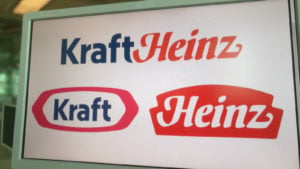
Nothing so focuses the attention on day trading like the profits generated by the wild swings of GameStop (NYSE:GME). But what GameStop lacks is what blue-chip stocks offer, and that makes them ideal for day trading, too. Protection against the pain of ruinous losses from being on the wrong side of a GameStop swing is the most obvious.
This comes from the solid nature of blue-chips, which makes the ideal for day trading. The share price does not swing as much for blue-chips. But large gains can accrue over time from stocks that don’t move much in price compared to a GameStop.
Also, many blue-chips offer the payment of dividends. So one of the delights of blue-chip stock ownership can be passive income. Therefore, investors can focus day trading on buying and selling blue-chip income stocks around the ex-date to “capture the dividend“.
DOMINION ENERGY (D)

Dominion Energy (NYSE:D) is a big cap utility with operations in the southeastern U.S.
Traditionally, utilities are not regarded as stocks to day trade. But Dominion Energy can be ideal for day traders. Even with a low beta, it still ranged over the last 52 weeks from $39 to $55 with a daily average volume of 4.6 million shares. Plenty of movement in the price is possible to buy and sell for profit, both long and short.
Additionally, the dividend is over 5%, more than twice the S&P 500 average. Income from a stock like this makes it one to consider for capture-the-dividend trading. Utility stocks traditionally have strong dividend yields that can make them especially rewarding for day traders.
Furthermore, the beta is low for Dominion Energy, as well as the short float. The company has high institutional ownership, meaning that hedge funds, mutual funds and pension groups own much of it. Also, the low short float indicates they do not think the price will fall as most shorting is done by institutional investors. Therefore, features like these help make mundane big cap blue-chips profitable for day trading.
KRAFT HEINZ (KHC)

Kraft Heinz (NASDAQ:KHC) is a holding of Berkshire Hathaway (NYSE:BRK-A, NYSE:BRK-B), headed by legendary investor Warren Buffet. While Buffett is known as a long term investor, there is much about this stock that should have day traders biting into Kraft Heinz, one quick nibble at a time!
With a beta of 0.53, Kraft Heinz is about as dull as a utility when it comes to price volatility. So what! There is plenty to be made from swings in Kraft Heinz, as the price ranged over the last year from about $31 to almost $39. The yield of nearly 4.6% adds seasoning to tempt traders when the X-date rolls around four times a year.
Moreover, institutional investors have already gobbled up a large chunk of Kraft Heinz. But there is plenty left for day traders to profit from as the average daily volume is over 7.5 million shares. Since the short float is very low, few are expecting the price to drop.
HONDA MOTORS (HMC)

Honda Motors (NYSE:HMC) makes great cars, motorcycles and, as the parent company of Honda Aviation, makes great jets. It has experienced a poor performance over the short-term due to the safety scandal over improper vehicle certification.
Yet that supports a large reason to day trade. Investors don’t get hit as hard by sudden adverse news to their position in the same way that long term investors. Day traders are always buying and selling, moving in and out of a stock from long and short stances. So they can avoid big hits that the buy-and-hold crowd absorbs and endures. And then they make a profit by going short on blue-chips falling in price.
Honda Motors is still up for the year. Even with the bad news, the short float is almost non-existent. The institutional ownership is very high, too. As a result, savvy day traders can make bank both going long and short. Any bad news from the scandal will take the price lower so day traders can also profit going short.
However, over the long term, expect more to be made by day trading from a bullish position since stocks fluctuate with a tendency to rise. HMC offers a dividend yield of over 4%. So day trading to capture that could be lucrative, too. The payout ratio is low so the dividend is not going away, even with the current troubles.
Disclosure: On the date of publication, Jonathan Yates did not have (either directly or indirectly) any positions in the securities mentioned in this article. The opinions expressed in this article are those of the writer, subject to the InvestorPlace.com Publishing Guidelines.





